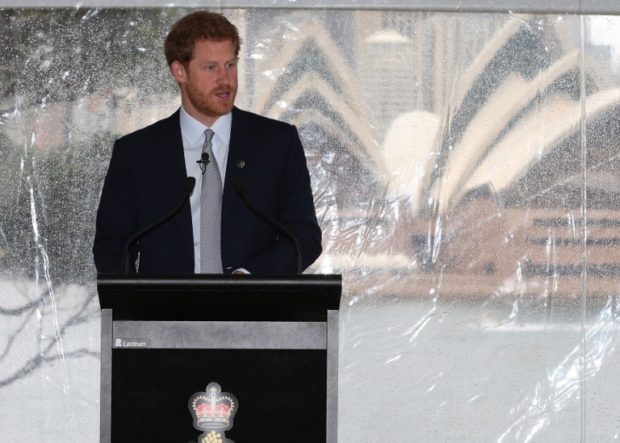Prince Harry says he locked away his emotions when mom died

Britain’s Prince Harry. AFP FILE PHOTO
TORONTO— Britain’s Prince Harry says he avoided dealing with his emotions after the death of his mother, Princess Diana.
The 32-year-old prince said in an interview aired on Canada’s CTV television network Friday that he lost “my mom when I was 12 so emotions were locked away very, very early on.”
READ: Prince Harry suffered ‘total chaos’ over Diana’s death
Harry paid tribute to his mother, saying she was passionate about caring for everybody. Now he’s following her example as he promotes the Invictus Games for wounded veterans scheduled for Toronto this September.
He said everyone should “take their hats off to her because she drew a spotlight to the causes and the issues that no one wanted to talk about.”
Article continues after this advertisementDiana made headlines in the late 1980s with her handshake with a man stricken with AIDS.
Article continues after this advertisement“You know good on her. And at the age of 36, you know, she was, she was taken away,” Harry said.
The prince told The Daily Telegraph in interview published last month that he “shut down all his emotions” for nearly 20 years and had been “very close to a complete breakdown on numerous occasions.” In that interview, he described a long, painful process of refusing to face his sense of loss that only came to an end when he was in his late 20s and sought professional counseling to cope with the pressures and unhappiness.
In the CTV interview, he said it is important to ask for help. “It is a sign of strength, it is a sign of bravery to ask for help,” he said.
Harry, who served in the British army, created the Invictus Games as a way to inspire and motivate wounded soldiers on their path to recovery.
“I know what these, what these guys have been through. I’ve done the same training as them, I’ve done two tours of Afghanistan, I’ve seen some pretty bad stuff and I’ve got really good friends in the military,” he said. “What better way than to use my position than to create a platform where they can shine and where they can use sport as part of the rehabilitation, not only for themselves, but for their families as well.”